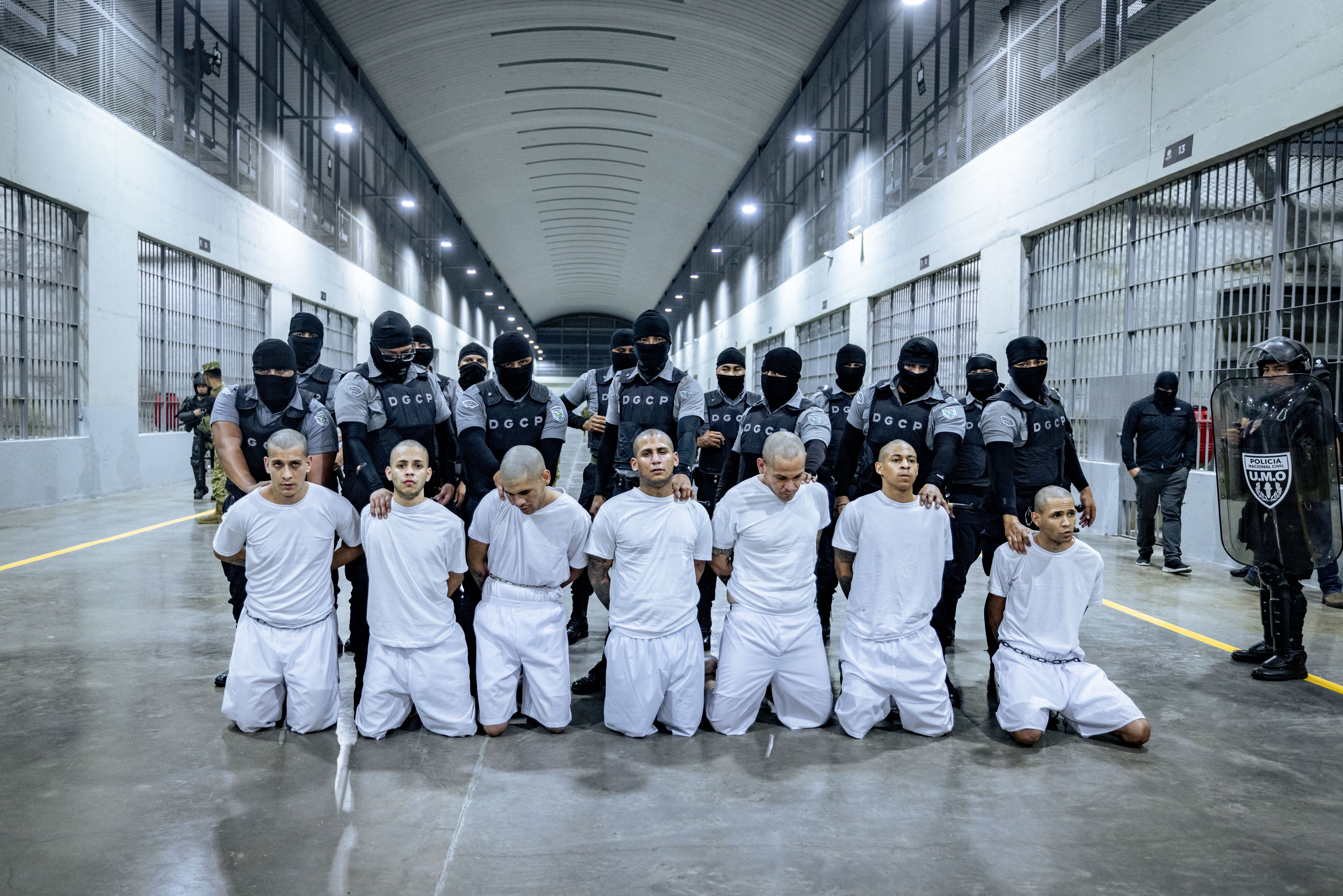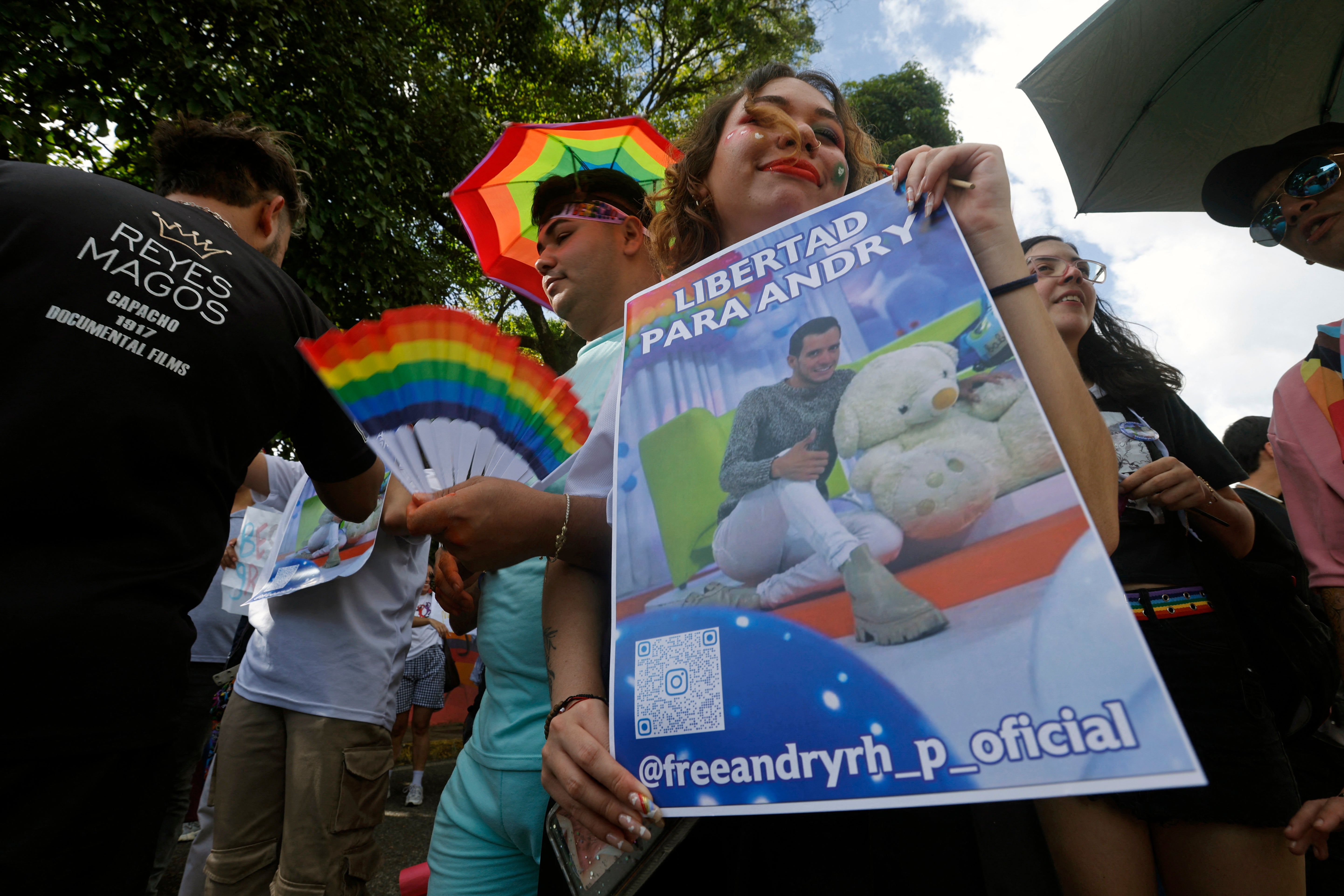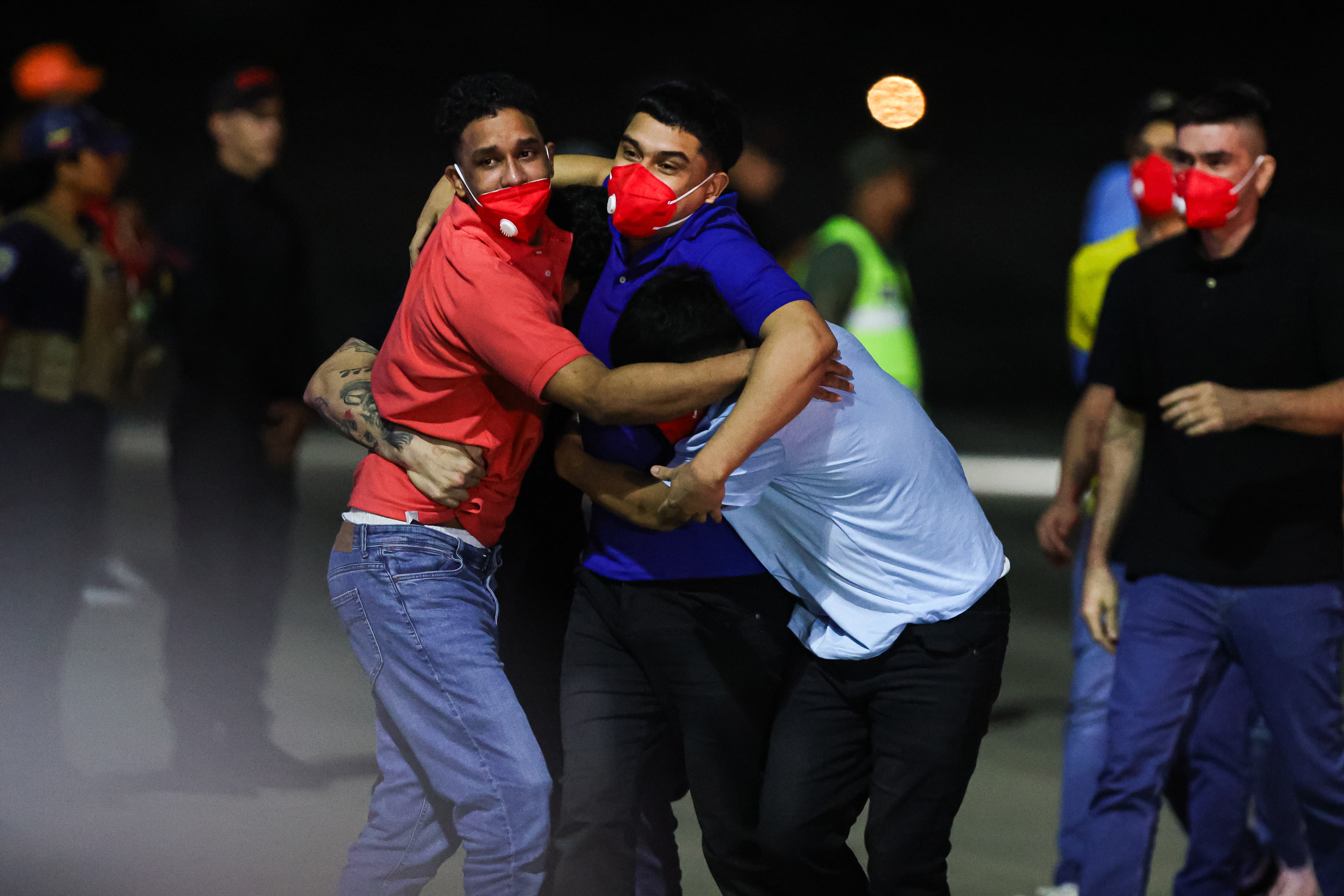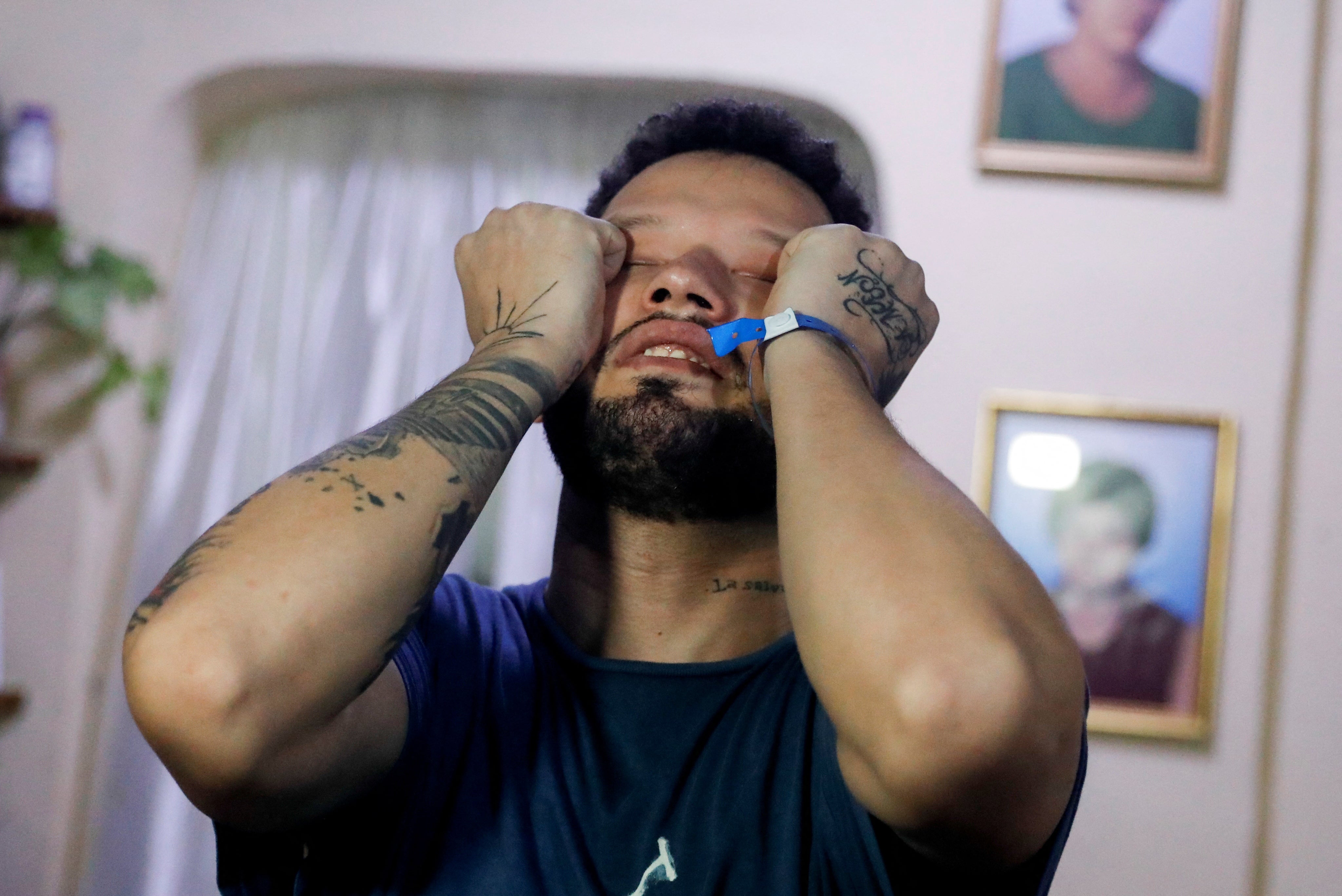Dozens of Venezuelan men, locked up in immigration detention centers in the United States, were abruptly flown to El Salvador in the middle of the night, shackled and gang-walked to a brutal maximum-security prison, heads shaved, and stuffed into jail cells where they lived for more than five months.
They weren’t allowed to speak with families or lawyers. They never stepped foot outside.
Now, after finally being returned last week to Venezuela by Donald Trump’s administration, they reveal traumatizing ordeals and adjust to the whiplash of arriving back in a country where many still face significant threats.
In a remarkable change in the US position, Trump officials have “obtained assurances” from Venezuela that the men will be returned to the US to continue their immigration proceedings — marking a chaotic full circle that could land them right back in the American detention centers from where they were deported.
Last week’s prisoner exchange appeared to mark the end of a months-long legal battle, challenging the president’s use of the Alien Enemies Act to summarily deport dozens of alleged members of Venezuela’s notorious Tren de Aragua gang. Trump officials had labelled these men “worst of the worst” criminals, and “alien enemies”, who committed “warfare” on U.S. soil.
Yet the swap has set them free in Venezuela, where President Nicolas Maduro’s regime is threatening to expose conditions inside El Salvador’s notorious jail. And the Trump administration could be forced to return many of those men to the U.S., with Venezuela’s help.
The Department of Justice declined to comment.
The administration is still seeking to use the Alien Enemies Act as a tool to rapidly deport immigrants as part of the president’s anti-immigration agenda. It will likely be up to the U.S. Supreme Court to decide if Trump can, or if the dozens of Venezuelan deportees will get their day in court.
On Monday, the Venezuelan attorney general’s office said it has opened an investigation into Salvadoran president Nayib Bukele for alleged mistreatment and human rights violations against Venezuelans detained in his prison.
Video produced by the Venezuelan government includes testimony of men claiming they were shot with pellet guns, beaten, deprived of food, and under constant threat of violence inside CECOT.

In his proclamation invoking the Alien Enemies Act in March, Trump stated that “all Venezuelan citizens 14 years of age or older who are members of [Tren de Aragua], are within the United States, and are not actually naturalized or lawful permanent residents of the United States are liable to be apprehended, restrained, secured, and removed as Alien Enemies.”
But government officials later admitted that “many” of those men did not have criminal records, and many were in the country with legal permission and scheduled to appear in court on their asylum claims.
A top judge in Washington D.C. had ordered the Trump administration to turn planes around on March 15 after learning in an emergency lawsuit that officials were flying men to El Salvador. The administration resisted, provoking an extraordinary legal battle in which Trump himself demanded the judge’s impeachment.
Now, after releasing those men back to Venezuela, administration officials have told federal courts handling Alien Enemies Act cases that they are prepared to return them.
Last month, District Judge James Boasberg compared their ordeal to a Kafka-esque nightmare.
“Significant evidence has come to light indicating that many of those currently entombed in CECOT have no connection to the gang and thus languish in a foreign prison on flimsy, even frivolous, accusations,” Boasberg wrote.

Among them was Andry Hernandez Romero, a gay makeup artist who sought asylum in the U.S. before he was arrested, placed in an Immigration and Customs Enforcement facility, and accused of being a member of Tren de Aragua.
He fled Venezuela for California in 2024, fearing persecution under Maduro’s regime. He has no criminal history or gang ties, according to his family and attorneys.
Romero lawfully entered California with an appointment through the CBP One app – a Joe Biden-era programme that allowed immigrants to make immigration appointments before reaching the U.S. – but was swiftly transferred to ICE custody, where officials labeled him a security risk because of his tattoos.
A photojournalist captured some of the first images of deportees inside CECOT and witnessed a man identified as Romero crying out for help. In the months that followed, immigrant advocacy groups feared the worst.
He is now in Venezuela.
“We have been fighting to free Andry, our other clients, and all the men from CECOT for more than four months,” according to Lindsay Toczylowski, president of Immigrant Defenders Law Center, which provided legal representation to his family.
“We are incredibly relieved that it appears most of them have been freed from the torture prison the U.S. government sent them to, and potentially may be reunited with family soon,” she said. “But as an American, and as a lawyer who believes deeply in the rule of law and due process, my heart remains heavy.”
Jerce Reyes Barrios, described by his attorneys as a professional soccer player and a youth soccer coach, fled Venezuela for the U.S. after he was arrested and “tortured” by “electric shocks and suffocation” for marching in demonstrations protesting Maduro, according to court documents.

He registered with the CBP One app in Mexico for an appointment with an immigration officer last year, but was taken into ICE custody in San Diego, where he was accused of being a member of Tren de Aragua, largely based on his tattoos — which include a crown on a soccer ball, a tribute to his favorite club Real Madrid, according to a sworn statement from his attorney.
Barrios is also expected to be among the Venezuelans freed from CECOT.
Neri Alvarado was told by ICE officers that he was arrested in February for his tattoos — one of which is a rainbow-colored autism awareness ribbon with the name of his brother, who is autistic.
His relatives watched him walk off a plane in Venezuela after his release from CECOT.
An emotional video shows Ysqueibel Yonaiquer Penaloza Chirinos, another Venezuelan immigrant who entered the United States legally with the CBP One app, returning to his family after his release.
“We spent four months without any contact with the outside world,” Arturo Suarez told Venezuelan broadcaster teleSUR following his release. “We were kidnapped … We got a beating for breakfast. We got a beating for lunch. We got a beating for dinner.”

Court hearings in the coming weeks are expected to revisit those legal challenges now that the men are no longer in CECOT.
In another Alien Enemies Act case, the Trump administration says it has “obtained assurances” from Maduro’s government that it will cooperate with court orders for Venezuelan citizens to return to the United States, if required.
“The Maduro regime will not impose obstacles to the individual’s travel,” ICE official Mellissa Harper said in a sworn statement to Maryland District Judge Stephanie Gallagher on July 18.
In that case, a wrongfully deported Venezuelan man identified in court documents as “Cristian” will be returned to the United States to continue his immigration proceedings, “should he wish to return.”
The statement is a remarkable change in the government’s position.
In April, Gallagher ordered the government to “facilitate” his release from El Salvador. But when ordered to cough up a status report about his condition, government attorneys essentially only told the court “we haven’t done anything and don’t intend to,” Gallagher wrote in court documents.
What happens next in potentially dozens of cases depends on dozens of individual and overlapping decisions after months of chaos.
Some Venezuelans will file individual lawsuits or seek relief through the current legal cases winding their way through the courts, while “others may have no desire or pathway to return to the United States, yet may still seek to pursue litigation to hold the Trump administration accountable for what they did,” according to American Immigration Council senior fellow Aaron Reichlin-Melnick.
Others may fear reprisals from Maduro’s regime.
“While the ultimate outcome of these cases is unknown, at least the men are free for now,” according to Reichlin-Melnick. “As their stories of what happened in El Salvador become public, pressure will hopefully build for international accountability.”







